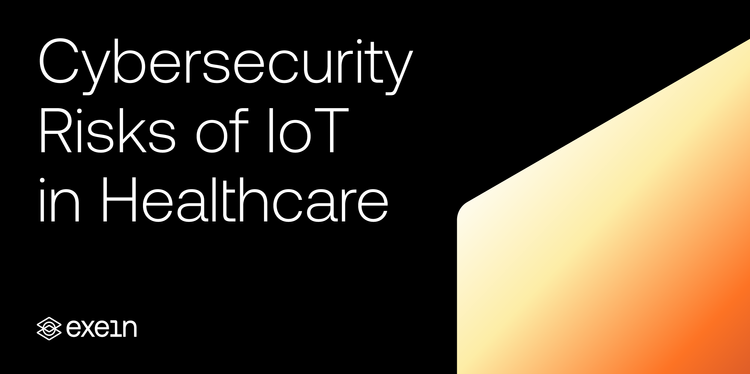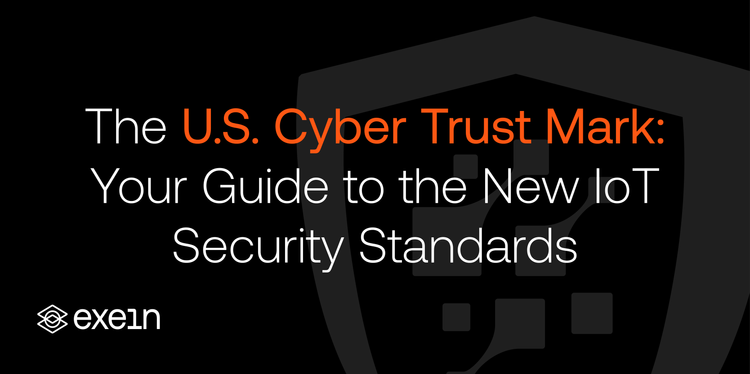From Compliance to Proactive Defense: Building a Robust ICS Security Strategy Beyond the Act

In the landscape of industrial control systems (ICS), the introduction of the Cyber Resilience Act represents a pivotal moment, signaling a shift towards more stringent cybersecurity standards across the board.
This legislative move not only mandates compliance but also encourages a shift towards more proactive cybersecurity practices, particularly through the integration of embedded security systems.
For ICS operators, achieving this advanced level of security is not just about compliance; it's about ensuring the operational integrity and resilience of critical infrastructures. Here's how embedded security plays a crucial role and how Exein can support organizations in meeting these new challenges.
The Impact of the Cyber Resilience Act on ICS
The Cyber Resilience Act introduces stringent requirements that aim to enhance the security landscape of networked devices, which are integral to the operations of Industrial Control Systems (ICS).
In the context of ICS, where the implications of system breaches extend beyond data loss to severe operational disruptions, safety hazards, and substantial financial losses, the act's mandates transcend traditional regulatory compliance. They are, in essence, a critical foundation for ensuring the continuous, safe, and efficient operation of these systems. The act's provisions are particularly transformative in their emphasis on the need for security measures that are not merely added to existing frameworks but are instead integrated into the core design of new devices and systems.
This forward-thinking, security-by-design approach, which the act advocates for, represents a paradigm shift in how security is conceptualized and implemented. It moves away from the often reactive, piecemeal strategies of the past, marked by the use of retrofitted security solutions, towards a more holistic, proactive, and inherently secure system architecture.
Such an approach, by building security into the very fabric of networked devices and systems from the outset, offers a level of protection that is both comprehensive and, crucially, more resilient to the increasingly sophisticated cyber threats of today's digital landscape.
Embedded Security as a Proactive Approach
Embedded security involves integrating security features at the hardware and firmware level of devices, ensuring that each component is inherently secure from the point of manufacture. This method is particularly effective in ICS environments for several reasons:
- Intrinsic Protection: By embedding security directly into the device hardware, protections are less likely to be bypassed or disabled by malware that can infect software layers. This ensures a robust defense even at the most fundamental level.
- Longevity and Reliability: Embedded security features are designed to remain operational over the lifecycle of the device, even in the face of evolving threats. This is crucial for ICS components, which often have extended operational timelines.
- Efficiency: Integrated security functions can operate with minimal overhead, thus not impacting the device’s primary operational functions—critical in environments where any delay or failure can result in significant operational disruption.
How Exein Supports ICS Compliance and Security
Exein is uniquely positioned to assist ICS operators in aligning with the Cyber Resilience Act through comprehensive security solutions that span the lifecycle of IoT and ICS devices. Here's how Exein can help:
- Security Posture Assessment: Before ICS components go to market, Exein’s tools analyze these devices to ensure they are devoid of vulnerabilities. This pre-market assessment helps in identifying and mitigating potential security flaws that could be exploited once the devices are deployed in operational environments.
- Runtime Threat Detection and Response: Exein supports a variety of platforms, from Docker to Real-Time Operating Systems (RTOS), offering versatile solutions to monitor and protect devices in real-time. This capability allows for the immediate identification and neutralization of threats as they occur, safeguarding critical infrastructure without disrupting operational continuity.
- Threat Intelligence: Leveraging the power of generative AI, Exein provides comprehensive documentation and intelligence about device security through an accessible platform. This service ensures that all stakeholders remain informed about the security status and are equipped with the knowledge to respond to threats proactively.
As ICS companies grapple with the stringent requirements of the Cyber Resilience Act, the role of embedded security becomes increasingly critical. It's not just about adhering to new regulations but about fundamentally transforming how security is integrated within industrial systems.
With Exein's cutting-edge solutions, ICS operators can not only comply with these new regulations but also advance their security posture significantly, ensuring that their systems are robust, resilient, and ready to face the cybersecurity challenges of today and tomorrow. This proactive approach doesn't just meet the standard—it sets a new one.




